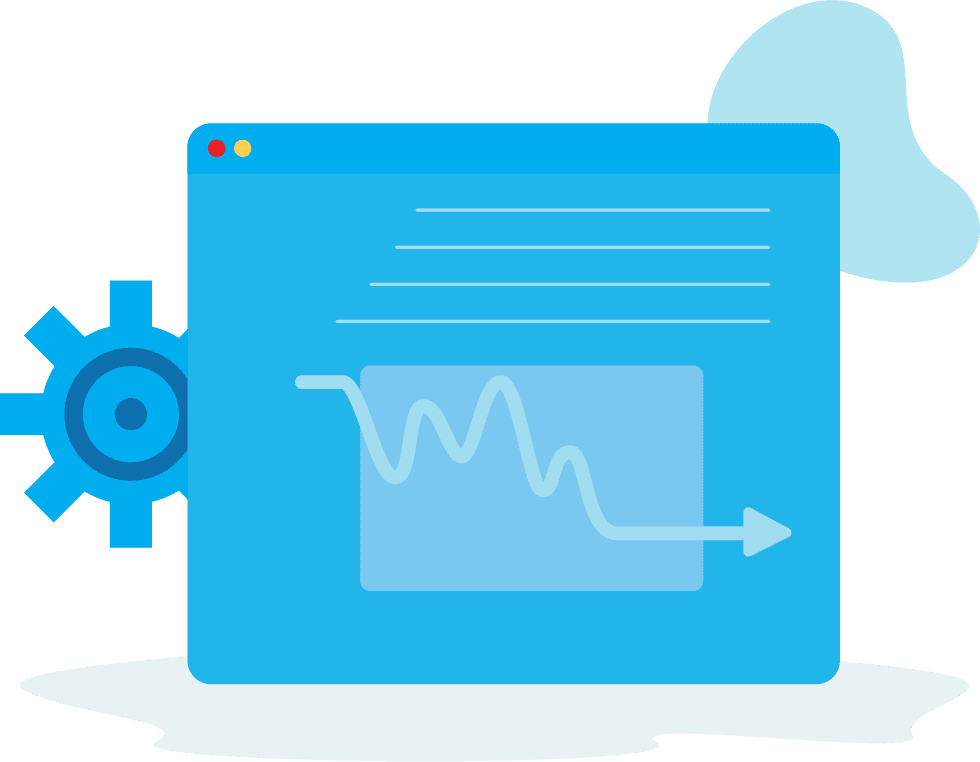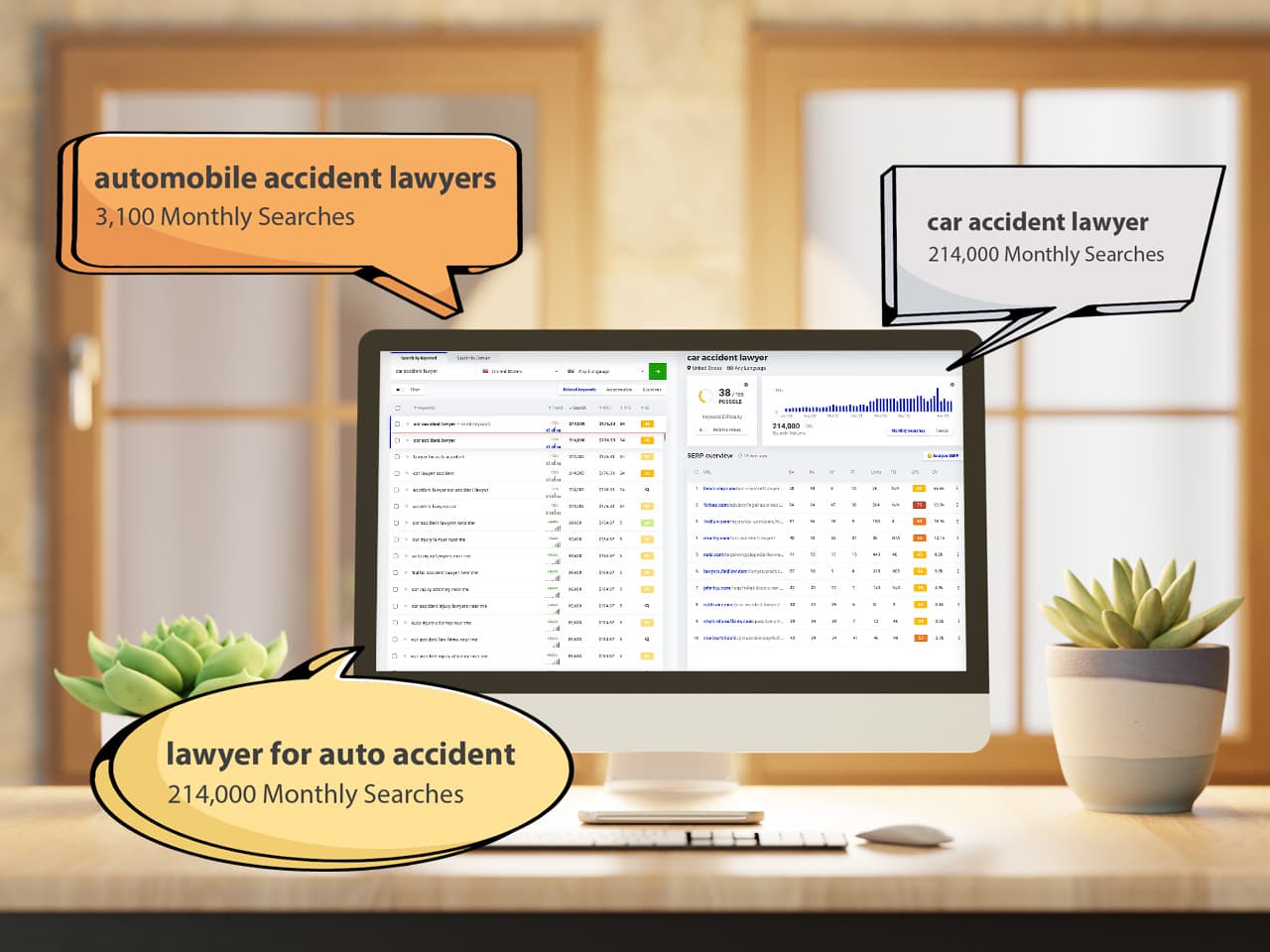Are you making these common Google mistakes?
Google’s algorithms can be equally as fascinating as they are frustrating; one day, your website can rank highly in the search engine and then drop the next with seemingly no cause, leaving you scratching your head. While Google largely keeps their algorithm a secret, it does clarify what it penalizes websites for.
According to HubSpot, a Google penalties are “a punishment against a website whose content conflicts with the marketing practices enforced by Google. This penalty can result from an update to Google's ranking algorithm or a manual review that suggests a web page has utilized ‘black hat’ SEO tactics."
What is Black Hat SEO?
Black Hat SEO is the practice of working against and manipulating SEO guidelines for your website to rank highly in the search engine. Businesses using black hat SEO tactics to boost their digital presence artificially should expect to be penalized by Google, see a drop in metrics, and even risk having the domain deindexed.
Recovery from these penalties is often time-consuming and expensive. Be careful of budget SEO companies that promise huge and immediate gains in traffic. Proper SEO campaigns can take 6-12 months to see results or even longer for highly competitive keywords.
Examples of Black Hat SEO
Keyword Stuffing: This includes using the same keywords over and over again. This was a heavily used tactic before Google's ranking algorithm became more sophisticated.
Cloaking: Showing users one type of content and search engine crawlers another. This could be hidden text, user agent cloaking, or IP cloaking.
Toxic Backlinks: Links to the domain originating from spam, or untrustworthy websites.
Understanding Google Penalties
Two Types of Google Penalties
Google penalties are punishments for violating Google's Webmaster Policies and are harmful to a website's search rankings. This negatively affects the ability of users to find your website when performing an online search. There are two types of Google penalties to look out for:
Manual Penalties
These occur when a real person working for Google reviews and consequently penalizes your website. Reports by users or competitors can cause this to happen, or it could also happen randomly.
Algorithmic Penalties
These are applied by Google’s algorithm without human intervention. These penalties happen quickly, more often, and in real-time. The algorithm, which works much faster than a human, scans a website’s content and weeds out anything that could mislead or not benefit the user.

Consequences of Google Penalties
Keyword-Specific Penalties
These lead to a decrease in rankings for a specific keyword. This can affect multiple pages across an entire website.
URL or Directory-Based Penalties
Rankings for a single or group of URL's are adversely affected while the rest of the domain continues to rank as normal.
Domain-Wide or Site-Wide Penalties
This penalty affects the entire domain, drastically affecting the rankings for every page on the website until the violations are remediated.
Delisting or De-indexing
This represents the most severe penalty, removing your domain from the Google index. As a result, none of your website's content will appear on Google.
Most Common Google Penalties
1. Low-quality Content
Google only wants the best content for its visitors, and it can determine the quality of your content and how many pages have low-quality content. Too many pages on your website with low-quality content will compromise its ability to rank highly on the results page and increase bounce rates.
2. Copyrighted Material
Google has recently cracked down on copyrighted material, giving any unauthorized use of images, videos, and articles a black mark. Unfortunately, many marketers do not know their published material is copyrighted until it’s too late. If you do use copyrighted content, don’t forget to credit it, or obtain permission.
3. Keyword Stuffing
One of the most common black hat SEO tactics, keyword stuffing is when a website overuses keywords, or search terms, on its pages. Not only is keyword stuffing quickly penalized by Google, but it’s also off-putting for users to read.
4. Spam Links
While link building is essential for SEO, the links must be relevant, reputable, and spam-free. Google can detect spam links, both outgoing and ingoing, and penalize your website if you use too many.
5. Sneaky Redirects
Businesses looking to unnaturally boost their content can use sneaky redirects to send users to a different page than what is shown in the Search Engine Results Page, or SERP. The SERP is the “front page” of Google results. This goes against Google’s guidelines and can result in a penalty.
6. Purchased Links
Over a decade ago, purchased links (also known as spammy links) built artificial credibility for websites within the search engine. As technology has advanced, Google can now determine which links are real and which are purchased and will penalize your website if you use purchased links.
7. Cloaked Images and Distorted Content
Cloaking happens when you distort content accessed by search engines by developing layered content. This can cause a search engine to believe your website has various content pieces through misleading links. Cloaked images and distorted content are meant to trick the search engine and could result in your website being pulled from the Search Engine Results Page, or SERP, altogether.
8. Hidden Links and Content
Businesses could hide links and content on their website by making the text the same color as the background, for example. That way, users can read one content piece while Google scans more. This allows businesses to stuff more keywords into a page and will result in a penalty.
9. Slow Load Times
Unfortunately, Google will penalize you if your website loads slowly. No one has the time or patience to sit and wait for a website to load for minutes. Instead, users will leave your website for a competitor that loads more quickly.
Factors that could slow down a site’s load time include unoptimized image files, poor server performance, and outdated code or content management system (CMS) software.
10. Not Optimizing for Mobile Devices
Many Google users perform searches on their phone instead of their computer. So, optimizing your website to be mobile-friendly is crucial. Since 2020, Google has switched to mobile-first indexing, which means they index websites based on their mobile and desktop versions. Moreover, Google rewards mobile-friendly websites and penalizes those that are not mobile-friendly, which results in less traffic.
11. Overusing Anchor Text
Anchor text contains hyperlinks, which users click on to be redirected to another page or a different website. Google wants websites with a natural amount of anchor text that redirects users to relevant websites and pages. So, both overusing anchor text and not using enough are subject to a penalty from Google.
12. Thin Content and Doorway Pages
This happens when a business favors quantity over quality regarding SEO content. In an attempt to quickly get SEO-optimized content onto their website, they could improperly use content-generating tools, publish haphazard short-form blogs, or reuse content from other sources. They could also utilize doorway pages, which are pages with a certain URL or domain name designed to rank for a specific search query while directing users to a different page that is not as useful as the one intended.
13. Viruses, Hacks, Breaching and Phishing
You must ensure your website is virus-free and protected from hackers, phishers, and data breaches. Google values the security of its users’ information and will penalize websites that could put it at risk.
Now What?
The best way to resolve Google penalties are to prevent them from happening in the first place by avoiding black hat SEO practices. However, not all businesses intend to violate Google’s guidelines, which is why there are some ways to fix a penalty when it happens. However, those unfamiliar with Google’s ever-changing algorithms may put their website health at risk if they approach it alone. Plus, developing and adding the highest quality content to your website could be a lengthy process of trial and error.
In addition, you must approach your content development carefully, which includes investing in a reputable marketing partner you trust. Too often, digital marketers take shortcuts through black hat SEO that may yield temporary results but only hurt your website and business in the long run.
Premier Digital Marketing Partners You Can Trust
When you turn to a dedicated marketing team, you can rest assured that your website is in good hands and will dominate the search engine ranks. At Legal Communications Group, we know that SEO is complex and requires consistent, hands-on attention. We also have seen the damage that black hat SEO tactics can do for a business, and we will never let that happen to you. That’s why we offer digital services that will reveal your highest-ranking website and most prominent digital presence while you focus on running your business.







